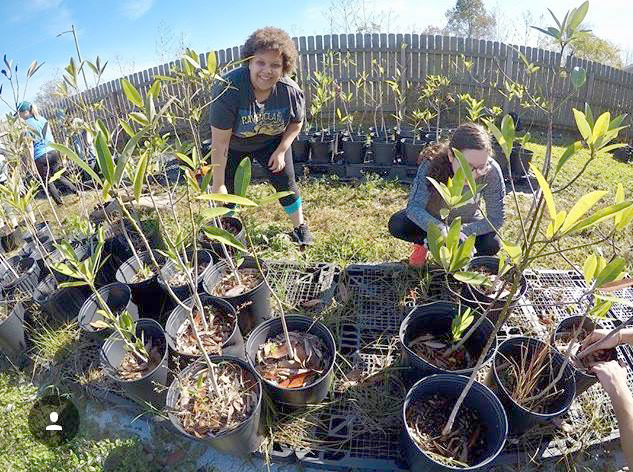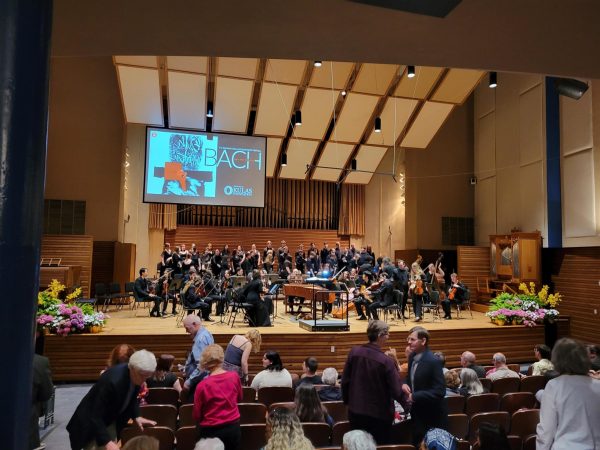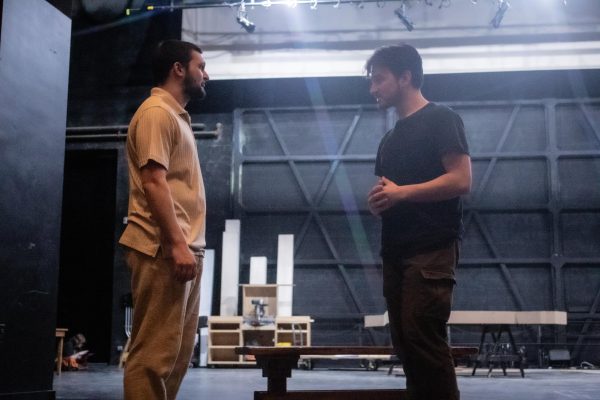Alternative Summer Break deadline approaching
Photo Submitted
The priority application deadline for the Alternative Summer Break Program is Feb. 20 for a variety of programs.
Baldwin Wallace’s David and Frances Brain Center for Community Engagement is wrapping up their preparation and application phase for the rapidly approaching Alternative Summer Break Program. Dr. Christy Walkuski, the Director of the Center, said that the trips will run from May 5 to May 12, and will cover such topics as environmental justice, refugee resettlement, women’s rights, and youth and chronic illness.
Walkuski said that priority applications for the summer break are due on February 20 in order to ensure that applicants can be interviewed and selected before beginning the six-week process of pre-education. The pre-education takes the form of six weekly meetings, which serve as both a means of developing chemistry as a unit as well as identifying the location and opportunities for service.
Virtually every aspect of the Alternative Break Program is student-run from the applicant interview process to the planning and execution of the trips themselves. One faculty advisor accompanies each group of students, but the student-empowerment and independence of the program lead to recognition as the Break Away Alternative Break National Program of the Year Award for the 2017-18 school year.
Walkuski said, “There are three big things that make our program special: An awesome community of BW people that become friends for life, empowered students that learn how to serve and positively impact the world, and groups that reflect unique, diverse, and interdisciplinary perspectives. And it’s fun, too!”
The impact of Walkuski on the program is hard to ignore, as she not only participated in alternative breaks as a BW undergraduate, but also as an organizer in both the non-profit and private-university settings. She has been directing the Center for Community Engagement at her alma mater for the last four years, overseeing rapid growth and a rise to national prominence.
As a result of the program’s immersive, educational, and active service approach, the school recognizes alternative break experiences as fulfilling the core experiential learning requirement.
Senior undergraduate Emma Anderson, a Music Therapy major, serves as co-student director of the Alternative Breaks Program alongside Peyton Flasco. After attending an alternative break as a sophomore, Anderson began leading trips of her own, including to the likes of Chicago, Il., where her group spent a week serving youths in trauma.
Anderson believes that her experience in alternative breaks has “benefitted her education in every possible way. I have become more confident, more involved in the BW Community, and I have developed a passion for service. I don’t think I would’ve had these types of opportunities and experiences otherwise.”
Anderson, who will be leading her final trip to Chicago with a program structured around the arts and social change, said that the co-ed group of ten students will be, “exploring how art can lift up a community and represent underserved voices.”
Included among the myriad of Chicago-based organizations with which the group will engage are the Children’s Museum of Art and Social Justice, the Jane Addams Hull-House Museum, and the Rice Child Family Center.
Anderson, whose group worked the Rice Child Family Center last year as well, said that her favorite memory of any Alternative Break Trip was when they greeted a tentative young girl who had just arrived at the treatment center to a new teddy bear. Anderson offered that “it made such a strong impact because the look she had when we gave her the bear was as though we had given her a million dollars.”
Those who choose to apply using the online portal will quickly discover that trips are not selected or rank-ordered based on destination; rather, the applicants select a topic or topics they are most interested in and the location remains a mystery.
The Alternative Break programs are not reserved exclusively for the four summer trips. The University also offers occasional weekend break programs in the Cleveland area, Fall and Thanksgiving break programs, as well as five programs a piece over the Spring and Winter Break sessions.
Walkuski said that the cost of the program is capped at $250 per week per student; despite the rapid growth of the program, the Center is committed to maintaining the price point to ensure its availability for all students. She also credited the “generous endowment from the Brain Family,” the namesake of the Center for Community Engagement, subsidizes the experience in order to offset student costs.
Walkuski said that low costs are also maintained by favoring a “sleep where you can” approach, rather than renting costly hotel rooms. She also touted the great fortune of having access to BW Vans as well as a food budget modeled off of the Supplemental Nutrition Assistance Program guidelines.
Those who wish to apply or learn more can visit bit.ly/SummerAB.
The Exponent is looking for financial contributions to support our staff and our newsroom in producing high-quality, well-reported and accurate journalism. Thank you for taking the time to consider supporting our student journalists.













































